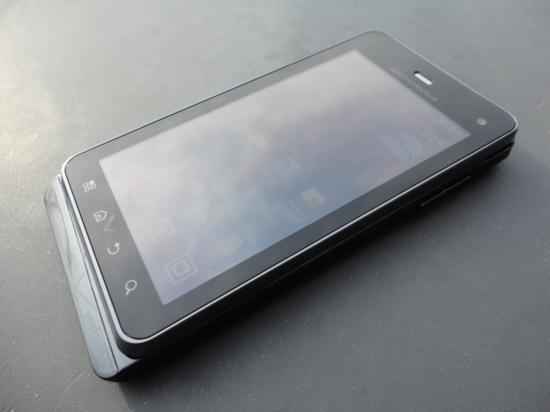
While software updates have always been a low point for the Android platform, Google has continually been working to improve its problem areas with each and every update. Last year, they teamed up with their partner manufacturers and created the Android Update Alliance, alluding to the fact that it would lead to faster turnaround times on updates from manufacturers (not necessarily carriers) and ensure devices up to 18-months-old would be upgraded to the latest software.
We had high hopes for the alliance, and Ice Cream Sandwich led some of us to believe updates would come more quickly than they had in the past. Within weeks of Ice Cream Sandwich source being released, all of the major Android manufacturers had spoken of software updates and given the public at least some information. While all of them were still being excruciatingly vague, the fact that they acknowledged the update so early seemed promising.
Six months later, however, we have learned that little has actually changed and manufacturers are still finding excuses to avoid having to support older devices.
As Jamie Lendino of PC Mag explains, Ice Cream Sandwich has been available for over six months now, yet only seven (U.S.) devices have either launched with or been upgraded to Android version 4.0. Those seven are: HTC One X, One S, EVO 4G LTE, Vivid 4G, Amaze 4G, Samsung Galaxy Nexus LTE and Nexus S 4G. (There's actually one missing from that list, the HTC Sensation 4G which received its update last week, bringing the total to eight devices.)
Of all the major Android manufacturers in the States, Motorola has been one of the most upfront and transparent with its update schedule. Just last week, they added several devices to the list that would eventually get Ice Cream Sandwich. However, they nonchalantly dropped two key devices from their upgrade plans in the process.
Despite the Android Update Alliance's efforts, the devices having sufficient hardware and both being less than one-year-old, neither the DROID 3 or DROID X2 will receive Ice Cream Sandwich updates. What was Motorola's reasoning exactly? Phil Nickinson of Android Central points out a poorly-worded explanation on Motorola's blog. It reads:
"You may be wondering why all devices aren’t being upgraded to Android 4.0 (Ice Cream Sandwich). Here’s the deal. We work very closely with Google and cell phone carriers for every software update. And, obviously we want the new release to improve our devices. If we determine that can’t be done—well then, we’re not able to upgrade that particular device."
What that apparently translates to is Motorola and/or Verizon do not believe 512MB is enough RAM to accommodate for Ice Cream Sandwich. But I'm willing to bet both devices could run Android 4.0 without a hitch. Take the Samsung Nexus S, for instance. While it may be a totally stock device, it also has only 512MB of RAM. It should be Motorola's duty to continue to support their devices for no less than 18 month, so says the Android Update Alliance guidelines. With or without Motorola Applications Platform (Motorola's custom interface), the DROID X2 and DROID 3 could (and should) be upgraded to Android 4.0. The problem is, it might take more effort and time than Motorola is willing to put into aging devices.
It would be one thing if these two devices were nearing 18-months-old. Considering all the changes Google is making to Android with every update and the different hardware requirements that would be necessary for a pleasurable experience, there should certainly be a little flexibility around that time frame. But these two devices in particular are not yet 12-months-old. The DROID X2 will be exactly one-year-old in five days, and the DROID 3 will not be one-year-old until July.
It is completely and entirely unacceptable for Motorola to even suggest these two phones should not be upgraded to Ice Cream Sandwich. Android upgrades across the board have always been poorly handled, but this is where Google should draw the line. Here's to hoping things will change on the software front at Motorola Mobility once the acquisition gets finalized later this week. (Google says Motorola will still operate as a separate entity, but there's no reason to believe they will not use their position to whip Motorola into shape, at least in terms of software.)
How did you feel when you learned Motorola would not provide software updates for your phones, DROID 3 and DROID X2 owners? Is this the last straw for you with Moto products? Should they at least provide bootloader unlock tools so that owners of these devices can hope to load an unofficial build of Ice Cream Sandwich on their DROIDs?